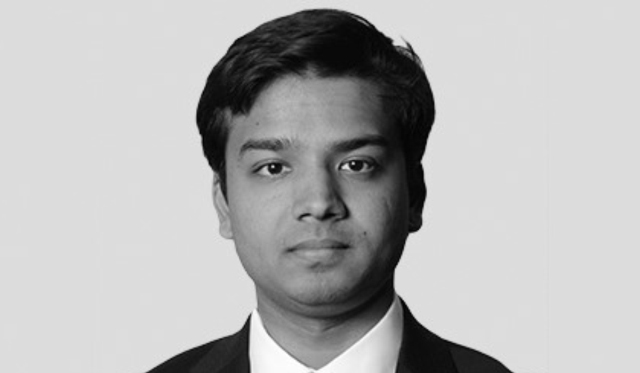Crossing disciplines in search of energy solutions
During frequent childhood trips to India, Riju Agrawal witnessed the daily struggles of families that lack access to electricity.
While visiting villages throughout the countryside with his uncle, who worked to improve electrification as a member of the state electricity board, Agrawal saw how a lack of electricity for cooking, lighting, and heating often keeps people mired in poverty.
“It really started to dawn on me that this is a systemic issue that affects millions of people around the country,” said Agrawal, S.B. ’13. “I started to wonder what we could do to solve it.”
That curiosity inspired Agrawal to pursue an engineering sciences concentration at the Harvard John A. Paulson School of Engineering and Applied Sciences (SEAS). As a student, he searched for ways to contribute to problems in the developing world. Agrawal used his engineering skills to create a low-cost water filtration system, comprised of carbon fabric, that could help provide clean water for the millions who lack access to this critical resource.
Thinking back to his childhood trips to India, he began looking for opportunities to learn as much as he could about the energy industry. Agrawal jumped at the opportunity to intern at an oil and gas contractor that was working to clean up the aftermath of the Deepwater Horizon oil spill. There, he contributed to discussions about spill cleanup procedures and designed installation equipment for deep water oil fields.
“That was an eye-opening experience for me,” he said. “The oil and gas industry is viewed as very archaic, but that isn’t the case. These guys are really pushing the boundaries of what can be done with modern engineering.”
As he learned more about the energy industry, Agrawal realized that engineering is only one piece of the puzzle—policy also played a huge role in the Gulf oil spill cleanup. So Agrawal changed gears and took on an internship at the White House, working for the deputy assistant for energy and climate change under President Obama.
He wrote policy briefings and memos for the energy team on topics ranging from geothermal to nuclear energy, and prepared a report on the energy policies of other nations.
“That experience cemented my interest in developing expertise that was multisectoral,” he said. “I started to see some of the synergies that exist in looking at a problem through multiple lenses.”
Agrawal accepted a position as an investment banking analyst in Morgan Stanley’s Global Energy Group and then worked as a senior private equity analyst at Blackstone Energy Partners.
At Blackstone’s energy fund, he helped make investments in energy companies, collaborated with management teams, and shaped operational strategies at Blackstone’s portfolio companies. Success in the private equity industry required a broad skillset, from working with scientists in the field to identify the best kind of rock for oil and gas drilling, to gauging the impacts of policy changes on the energy industry, he said.
Agrawal enjoyed the entrepreneurial nature of his role, and the ability to apply his technical training to large-scale problems. He quickly realized that a multisectoral approach requires one to ask the right questions, and to collaborate with subject-matter experts, like geologists and engineers, to find the answers.
“I learned that engineering solutions are not the end-all, be-all. There are a lot of other issues you need to think about before the answer makes sense. Can you afford this? Will the policy allow this? Is it the right business decision?” he said. “You have to be able to interface with other teams to put a solution into practice and see it through to the end.”
Agrawal has now come full circle, following his interests back to Harvard. Recently named a Rubenstein Fellow, he is pursuing a joint MBA/Master of Public Policy degree at the Harvard Business School and Harvard Kennedy School of Government.
He intends to spend the next three years studying energy policy and energy business opportunities, while conducting research on energy crises that plague many emerging economies.
“The energy problem in India has gotten slightly better since I was young, but it is still a huge issue,” he said. “There is a great need for cross-disciplinary approaches. I want to use a combination of my skills to make an impact in India, to help the millions of people who suffer from this energy crisis.”
